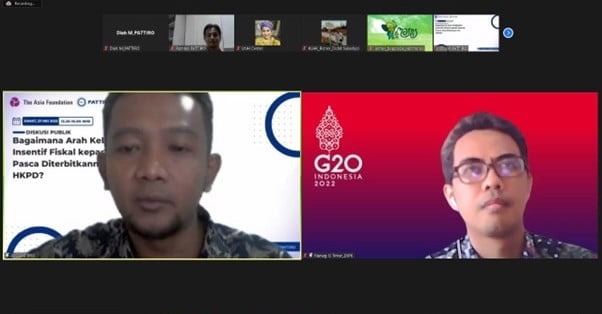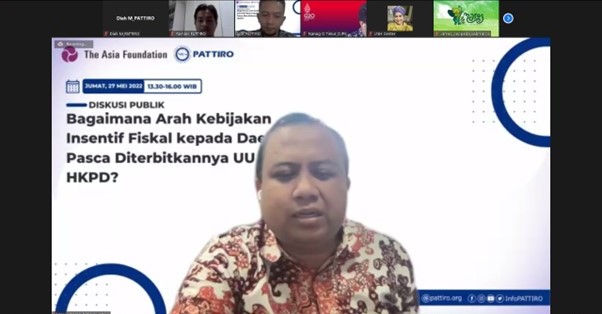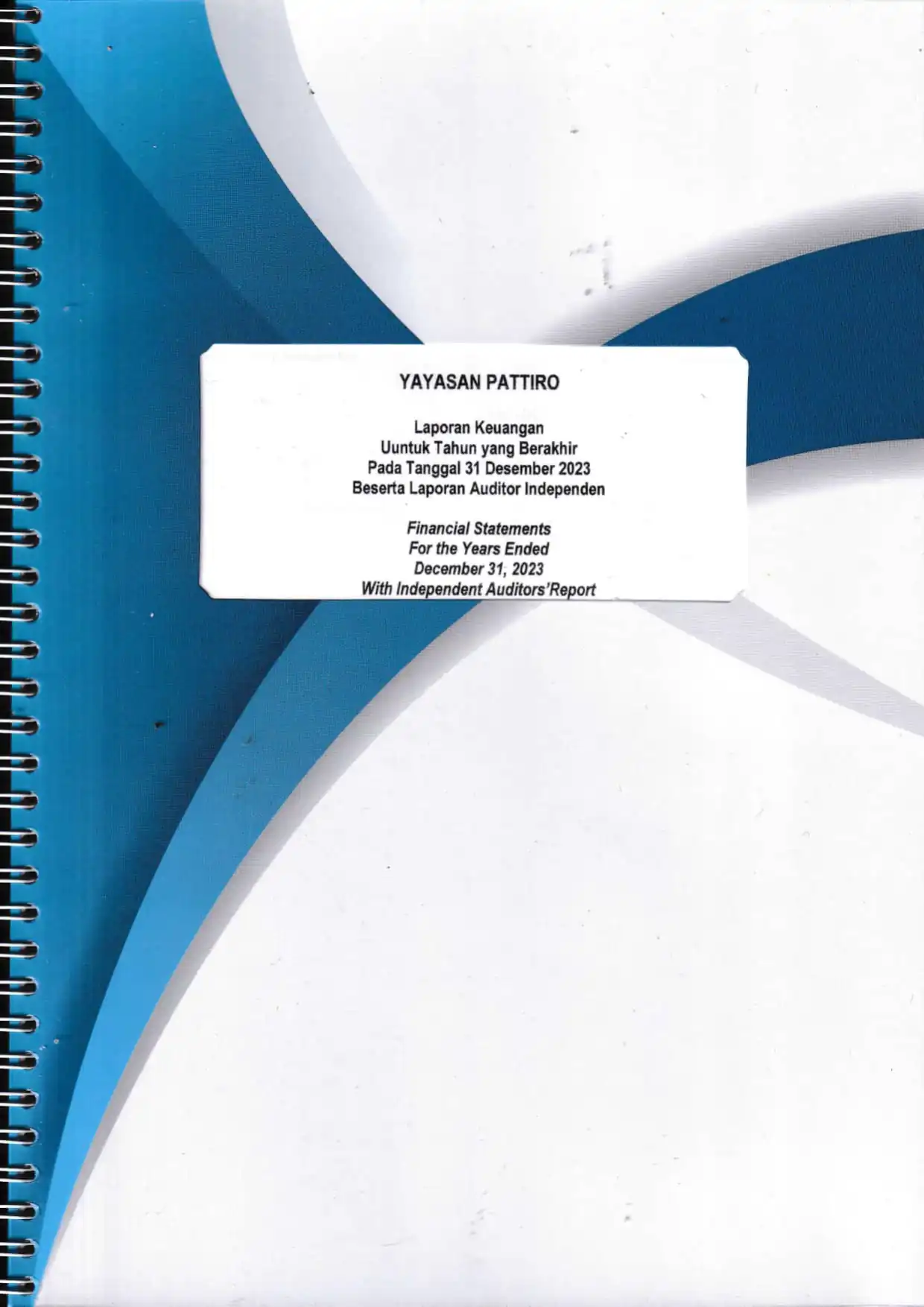
After the issuance of Law no. 1 of 2022 concerning Financial Relations between the Central Government and Regional Governments (HKPD), the Government is expected to formulate arrangements for fiscal incentives that encourage regional performance in maintaining environmental and forestry protection.
PATTIRO Program Manager, Ramlan Nugraha, in his presentation at a public discussion titled “What is the Direction of Fiscal Incentive Policy to the Regions after the issuance of the Financial Relations Law?” on Friday, 27 May 2022 explained that one of the regional efforts encouraged to receive fiscal incentives refers to regional governments that have implemented regulations regarding Ecology-based Provincial Budget Transfers (TAPE) and Ecology-based District Budget Transfers (TAKE). Furthermore, Ramlan said that the government needs to appreciate regions that have implemented the TAPE/TAKE regulation by providing fiscal incentives.
Regions that have implemented the TAPE/TAKE regulation need to receive appreciation from the government through fiscal incentives. This is because the initial purpose of fiscal incentives is as an appreciation for regions that have had good performance in governance, including environmental management. In addition, to appreciate the performance of these regions, the government is expected to include local government commitments that have environmental protection regulations—TAPE/TAKE—in the variable for assessing future fiscal incentives.
Meanwhile, Nanag G. Timur from the Directorate of General of Transfers at the Ministry of Finance said that although fiscal incentives are not included in the Regional Transfers (TKD) type, they are included in the HKPD Law.
“In Article 135 of the HKPD Law, the Government can provide fiscal incentives to regions for performance achievements based on certain performances. The performance in question is in the form of improvement and/or achievement of local government performance in terms of regional financial management, government public services, and basic services,” said Nanag.
The future direction of regional fiscal incentive policies will refer to regional performance that supports national priority policies and the implementation of national fiscal policies. The mechanism for providing fiscal incentives can be in the form of allocation of funds or certain facilities, such as relaxation of TKD channel requirements. In addition, in maintaining transparency, regional performance appraisal indicators will be informed earlier to regions, prior to their allocation. In terms of determining indicators for assessing fiscal incentives, the Ministry of Finance is waiting for a proposal from the technical ministry, namely the Ministry of Environment and Forestry. However, his party emphasized that the assessment indicators are expected to have specific assessment variables and do not intersect with other assessment indicators, or between intersecting indicators, collaboration or merging can be carried out.
The Ministry of Finance is currently discussing a draft Government Regulation that regulates fiscal incentives. However, Nanag has not been able to reveal the contents of the draft Government Regulation, considering that it is still under discussion at the ministry. Therefore, the existence of this forum is very important to solicit input from various parties.

Another resource person, Didid Sulastyo from the MEF Planning Bureau, said that the existence of a regional fiscal incentive policy in the HKPD Law has provided a reference for the basis for granting and criteria for granting fiscal incentives. The government can provide fiscal incentives for local governments that perform well in providing public services. This year the Ministry of Environment and Forestry has proposed the TKD fund for the environment/forestry (LHK) sector for Fiscal Year 2023 to the Minister of PPN/Bappenas through the Secretariat General’s Letter No. 32/Setjen/Rocan/RPA/Set.1/4/2022. In the letter, the Ministry of Environment and Forestry (MEF) proposed the TKD Fund through three mechanisms, namely the Physical DAK Assignment for the LHK sector, the Non-Physical DAK for the LHK Sector, and Regional Incentives for Budgeting TKD TA 2023 in the 2023 RKP. Initiation of fiscal incentives in the LHK sector is carried out as an effort to give appreciation to regions that perform well in the field of environment and forestry, and encourage other regions to perform in environmental/forestry management at the site level within the framework of a green economy. In terms of indicators for assessing fiscal incentives, MEF is currently looking for ideal indicators that can comprehensively assess the performance of environmental and forestry management.
Meanwhile, Member of the DPR Commission IV Luluk Nurhamidah highlighted the lack of budget provided by the government for fiscal incentives for regions that have performance in environmental protection. Not only that, the number of regions receiving fiscal incentives is also minimal. As is known, based on data from the Ministry of Finance, the number of recipients of the Regional Incentive Fund (DID) in 2022 is 26 regions with a disbursed budget of IDR 56.2 billion. According to Luluk, the desire to protect the environment must be accompanied by a strong budget policy from the government, including providing budgets for local governments that have good performance in protecting the environment.
The discussion organized by PATTIRO with the support of The Asia Foundation went smoothly until the end of the event. The event was closed by Bejo Untung as the Executive Director of PATTIRO. The participants who attended were about 78 persons consisting of 40 men and 38 women coming from Ministries/Agencies, Regional Governments, Academics, and Civil Society Organizations both at national and regional levels. (RN)






